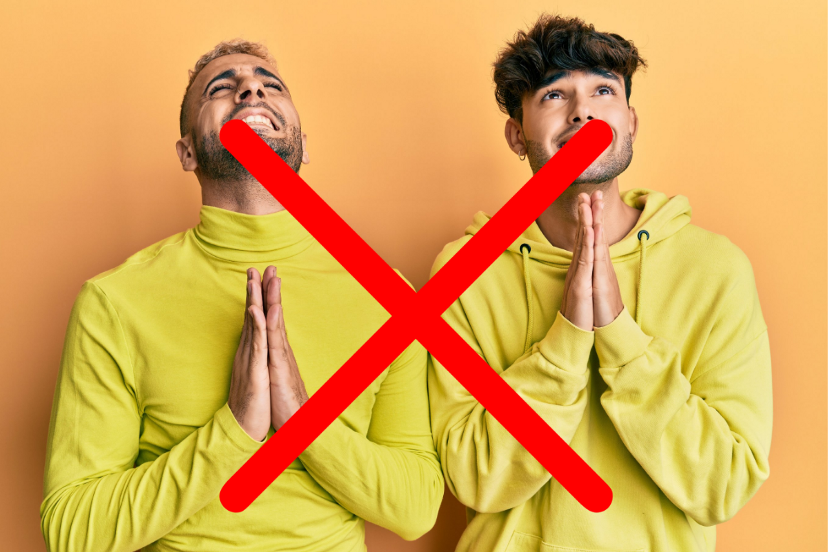By James Finn | DETROIT – Reporting on LGBTQ issues in the U.S. Roman Catholic Church is hard if you’re prone to motion sickness. Or whiplash. If the Church were a ship, it would be veering wildly in heavy seas. If you were a crew member, you might feel tempted to jump in a life raft.
This is unusual for an institution normally seen as staid and prone to only glacial change.
If you can’t guess from my surname, my extended family are mostly Catholic, and in recent years many of them have thought about jumping overboard. My Catholic-school social worker cousin already took the plunge.
She quit her job more than a year ago over her belief that the U.S. Church, including her school, has lurched hard toward mean.
I wrote about her decision then from my perspective as a gay man grateful that my not-very-liberal family member objected on moral principle to mistreating LGBTQ students. Faced with an intractable conflict between hurtful school policies and her code of ethics as a social worker, she jumped.
When I learned recently that she left her parish church to attend Episcopal services, I was shocked. She and I went to church and school in that parish, and so did our parents. I know how devoted she was to it. I’m sure she’ll shed tears this Christmas Eve as she misses the midnight mass she’s loved since she was a toddler.
I can only imagine the pain she must feel divorcing herself from her community. But she says the values of love and service her Catholic community planted in her require her to leave it now. I think she believes she’s still a faithful Catholic in her heart. Her values as a follower of Jesus are at stake, she says, and those values demand her loyalty more than any institution can.
Breaking news from Denver didn’t drive her decision, but faithful Catholics in Colorado face the same conflict
The Denver Post broke a story last week, publishing an ugly 19-page document the Archdiocese of Denver issued to administrators of its 36 primary schools and high schools. The document instructs that children who identify as transgender should not be admitted as students, and that children of same-sex couples should be admitted only rarely, on a case-by-case basis. In such cases, says the document, schools should treat only one parent as a parent, with the other relegated to emergency-contact status.
The document also bans the use of pronouns that don’t match a child’s birth sex, bars makeup-wearing for boys while specifying that “tomboy” behavior in girls is acceptable, and instructs school leaders that neither students nor parents may publicly object to anti-LGBTQ policies, including via social media, on pain of expulsion.

If you aren’t Catholic, you may think this is normal. It is not.
It’s a hard lurch toward mean that only really got going when the U.S. Supreme Court legalized same-sex marriage. Catholics like my social-worker cousin grew up experiencing the Church as big-tent-ish and tolerant-ish. I say “ish” because she has always been aware of Catholic teachings on gender, sex, abortion, etc. She agrees with most of them, which is why I wrote that she’s not liberal.
But she grew up in a Church that included people instead of demanding ideological purity. She grew up in a Church where Catholics could respectfully disagree on matters of personal conscience and then celebrate the sacraments together.
Last year when the diocese that serves the upper peninsula of Michigan announced that most LGBTQ people were banned from the sacraments, my cousin was shocked to her Catholic core. “What about their consciences?” she asked me. “And why does the bishop want to drive them out of the Church?”
That’s a good question that Catholics all over the U.S. are asking. It’s a question Pope Francis has posed as he (sometimes half-heartedly) urges priests and bishops to re-dedicate themselves to pastoral care instead of authoritarian enforcement of moral codes.
When I say the Church is lurching, I mean in part that the Pope’s message is so hopelessly mixed that outcomes like in Denver are almost inevitable.
In 2019, Francis approved global guidance on Catholic education that used shockingly harsh language to describe transgender people while suggesting that trans and gay students should rarely (or never) be admitted to Catholic schools.
Much of the Denver document the Post revealed appears to be a straight lift from that Vatican guidance.
U.S. Church leadership is highly traditionalist/conservative
If you aren’t familiar with Catholic vocabulary, “traditionalist” is shorthand for conservative, which is not a word Catholic leaders use much, often insisting that liberal/conservative polarities are irrelevant to Catholics.
However, Catholics in cities like Boston, Chicago and San Diego often call their leaders liberal. LGBTQ people are mostly welcome at church and in school. Individual conscience is honored much more than in traditionalist dioceses like Los Angeles, Detroit, and Milwaukee. Fr. Greg Greiten, pastor at Milwaukee’s St. Bernadette Catholic Parish, says his reaction to new, hardcore anti-LGBTQ policies is “fear.”
Since traditionalist bishops dominate the U.S. Catholic Church (unlike in Canada or most of Europe) Fr. Greg’s fear dominates among American parishioners who are LGBTQ or who want their LGBTQ family and neighbors welcome in church and at school.
Much like in the U.S. Evangelical Protestant world, traditionalist Catholic leaders today seem bent on defining Christianity by gender/sexuality teachings — even when harsh policies that result contradict the teachings of Jesus and contradict the Pope’s emphasis on pastoral care.
This lurch to the right, especially in a way that harms and excludes people, is radical in a Church that normally inches along.

The moral panic seemed to set in among traditionalist bishops in 2015 when same-sex marriage became the law of the land. Bishops (as in Indianapolis) began waves of witch hunts targeting gay teachers, social workers, organists, and music directors. The wave started small but grew steadily, policies becoming harsher and more widespread.
Today, in much of the U.S. Catholic world, LGBTQ people have been effectively demonized, regarded as outside the pale of acceptable disagreement. Shunned. Fired. Expelled.
And now the shocking Denver policy.
Clearly, this presents an existential crisis for the U.S. Church, facing an exodus from the pews that ex-Catholics like my not-liberal cousin blame in large part on harsh practices.
If I were still a Catholic, that exodus would probably feel heartbreaking, but my heart is broken much more over how demonizing practices hurt LGBTQ people, especially youth.

I’ve written before about Alana Chen, a young woman who committed suicide after nuns and priests in Denver encouraged her to enter conversion therapy. Alana wanted to be a nun, but was told that her same-sex attraction disqualified her. The archdiocese says the therapy Alana pursued was not conversion therapy, but they admit the psychological/spiritual practices she engaged in were designed to reduce or eliminate “unwanted same-sex attraction.”
Mental-health professionals define that as conversion therapy, noting that it has never been shown to be effective and that it correlates strongly to suicide attempts. In fact, the more a person wants the “therapy” to work, the more likely they are to try to kill themselves.
Alana’s death was tragic, and her mother is furious that clergy counseled her teenage daughter in secret, but Alana is the tip of a toxic iceberg.
I often write about politicians whipping up anti-LGBTQ hatred, about how toxic political messages are driving LGBTQ youth to despair. The Trevor Project and The Rainbow Youth Project USA run crisis lines that are overwhelmed today by a surge in demand.
Trevor went from an average of 200 calls a day in 2017 to over 2,000 per day in 2022. And growing.
Harsh Catholic policies as in Denver will add to those numbers.
You cannot send messages that LGBTQ kids are morally unacceptable without harming them and teaching their peers that it’s okay to harm them. The Denver diocese urges people to treat queer youth with kindness and respect in the same document where they order queer youth out of their schools.
Which message do you suppose people are hearing? Expelling a kid because he’s trans or because he has a gay mom is about as unkind and disrespectful as you can get.
At least one group of faithful Catholics is staying in the Church.
When I reached out to Marianne Duddy-Burke of Dignity USA to ask for her take on Denver, she sounded exhausted but determined to stay and fight. She told me about a new initiative I think my cousin would love.
If you don’t know Dignity, they’re a group of Catholics who work “for respect and justice for people of all sexual orientations, genders, and gender identities — especially gay, lesbian, bisexual, and transgender persons.”
Rather than respond individually to the exclusionary Denver policy and waves of similar ones, Dignity just announced, Beloved by God: A Catholic Commitment to Trans-Affirmation, which centers a declaration of support for transgender Catholics.
Click here to read the declaration and learn how you can sign it if you lead a Catholic parish, parish group, agency, or advocacy group.
If you don’t, but you want to help LGBTQ youth as best you can, even if you aren’t Catholic, click below to learn how you can join Rainbow Youth USA and work to help queer kids demonized by political and religious messaging.
Think if it as throwing a lifeline to people jumping off a foundering ship!

************************

James Finn is a columnist for the LA Blade, a former Air Force intelligence analyst, an alumnus of Queer Nation and Act Up NY, and an “agented” but unpublished novelist. Send questions, comments, and story ideas to [email protected]
********************
The preceding article was previously published by Prism & Pen– Amplifying LGBTQ voices through the art of storytelling and is republished by permission.








